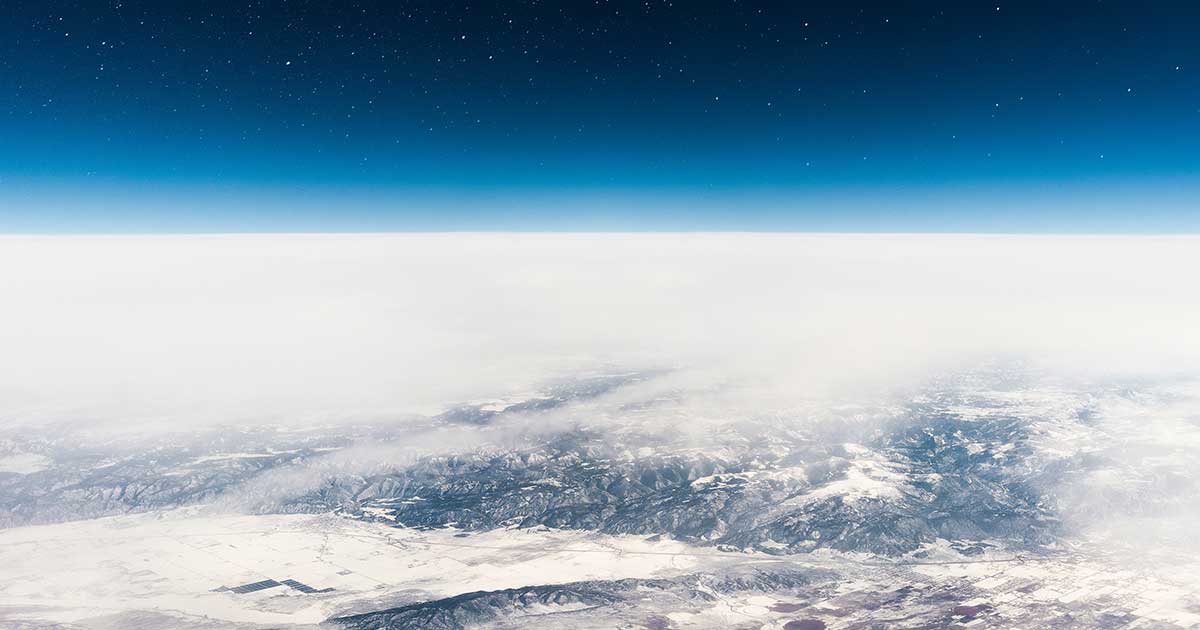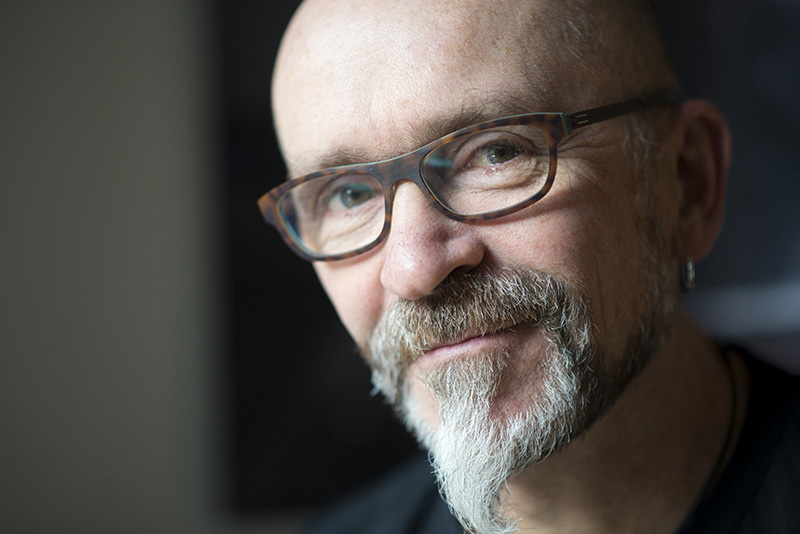SOAPBOX
★ ★ ★ ★
BECOMING WE

Image by Daniel Olah
By Mike Hembury
“It’s bad you know…”
R.L Burnside
I have always been an avid reader of science fiction. Even as a kid, the idea of expanding on the possible, of dreaming new worlds always exercised a grip on my imagination. And whilst many of these new worlds were experiments in Utopia, more often than not they were dystopias – stories of worlds gone wrong, of unnecessary hardships or catastrophic outcomes.
Pretty much like our own world then.
We live in a world of extremes: extremes of beauty, of possibilities, of abundance. A natural world so amazingly diverse that it blows my mind just to think of the incredible forms that life has evolved into, and the way that living beings have occupied ecological niches and biomes all over the planet.
And yet at the same time we live in a dystopian world where life is treated as a commodity, as a resource to be farmed, plundered and wasted, where big companies are happy to destroy the natural world for profit, to despoil ecosystems and render the planet inhospitable to life, both human and non-human.
So it’s a pretty big deal when the world’s top scientists issue a consensus report on the state of the planet, and the direction it is travelling.
The Intergovernmental Panel on Climate Change’s (IPCC) sixth assessment report was published recently, on 20th March 2023 to be exact. The report was the last in the IPCC’s series of analyses, and was referred to by some as a “final warning”. Maybe you heard about it, but I wouldn’t be surprised if you didn’t. Because in spite of its frankly terrifying contents regarding the state of the planet, most mainstream media outlets refused even to mention it.
To give you a quick summary, the report basically said that the climate catastrophe is happening right now, and that we need to slam on the brakes if we want a chance of survival in an increasingly hellish future.
In the words of the climate research collective Climate Science 2030: “The window of opportunity for a liveable future for all is closing fast. We cannot afford further delay in transitioning to clean, renewable energy and slashing emissions.”
Or as NASA scientist and climate activist Peter Kalmus put it: “It’s quite something that the world’s top scientists put out a synthesis report that essentially says civilization as we know it will end unless the world comes together to stop rapidly expanding the fossil fuel industry but to instead rapidly end it, and almost no one cares.”
Indeed, as far as the mainstream media is concerned, the imminent destruction of the planet’s ecosystems, the clear and present danger facing billions of people worldwide, doesn’t get so much as a look-in.
Let’s be clear about this: It’s not so much that we are not making sufficient headway in our efforts to drive down emissions. It’s more that we are making record-breaking efforts to go in the other direction.
Capitalism is on autopilot and it doesn’t give a shit.
And by that I mean that capitalism as a system is not concerned with the “externalities” of pollution, environmental degradation, or maintaining the environment. Capitalism as a system is only concerned with turning the world into money. It’s been estimated that just 100 of the world’s largest firms are responsible for 70% of greenhouse gases. The heads of these companies aren’t despoiling the world just for the fun of it. They are doing it because they have totally internalised the logic of their business model, which has come to mean more to them than anything else.
It’s also the source of the shitload of money that forms their own personal wealth.
Which brings me back to science fiction dystopias. One of the words that I have noticed cropping up recently has been the idea of “polycrisis”, which I guess is an educated way of saying clusterfuck. The polycrisis means a coming together of diverse crises, to form one ever more intertwined and insolvable whole, with each crisis feeding off the other and magnifying its effects. I was reminded of this when I recently read a couple of novels by William Gibson, one of my favourite authors. In his near future dystopia, our civilisation hits the “Jackpot” – a cynical term for the coming together of climate change, ecological breakdown, plague, crop failure, military conflagration – which has the effect of radically decimating the world’s population.
Now it doesn’t take much imagination to recognize that as things stand, we are clearly heading for the jackpot. Quite apart from the political and military imponderables such as war in Ukraine or widespread conflict in the Middle East, the mere fact of simultaneously crossing critical planetary boundaries regarding greenhouse gases, sea level rise and global temperature rise, ocean acidification, planetary deforestation, environmental pollution, depletion of fresh water sources, species extinction, crop failure and topsoil degradation means that our future is looking increasingly bleak. And by “our” I mean “we” as humanity, we, the inhabitants of planet earth.
Frankly, the prospect of such a future is enough to strike terror into the hearts of the bravest among us.
And of course terror leads to despair, hopelessness, depression – to giving up.
One of the biggest con tricks of the modern age is the way we have been systematically convinced of our powerlessness, of our inability to change the way we live. The mainstream media hypes the radical right and their increasingly fascist worldview, whilst simultaneously belittling and attacking progressive leadership and progressive majorities the world over.
The message is repeated over and over again: We may be heading for catastrophe, but there’s nothing we can do about it. And more to the point: there’s nothing you can do about it.
This, of course, is bullshit.
I was deeply impressed this week by a book called The Worm at the Core, which concerns itself with something called Terror Management Theory. TMT basically says that for more or less all of history, we humans have been dealing with the existential terror of our own mortality by making up cosmologies, gathering ourselves into like-minded groups, and generally promoting the myth of our own immortality.
Some people conceive of this in quite literal terms by believing in gods of various stripes, reincarnation, heaven and hell. Others see it as passing something of value on to the generations that follow.
From this point of view, the fantasy politics espoused by the radical right can be seen as a fully-fledged flight from the existential terror of our own impending extinction.
Facing up to climate change reality is hard, but it doesn’t mean that there is nothing to fight for. Quite the contrary, in fact.
I think it was the feminist author Rebecca Solnit who said that hope is not something we have, hope is something we construct by our actions. Hope is something we make. Hope is a gift that we are able to give to others at specific moments in history.
So hope is a disenfranchised Tennessee lawmaker channelling both Martin Luther King and Malcolm X with the raised fist of a black power salute.
So hope is the workers and students of France who have taken to the streets for months on end in defiance of the violence of the cops and a president who proclaims that there is no alternative.
And when all else fails, hope can be something as simple as singing a song of resistance or joining with others on a demo, a strike, a sit-in, whatever.
With each act, we reclaim our agency. With every coming together, we reaffirm that it doesn’t have to be this way.
With every action, we weave part of that continuous thread of resistance that has kept us sustained since time immemorial.
We manage the terror of the future that capitalism has in store for us by joining with others, becoming we. And by bequeathing hope to future generations.
That, surely, is better than immortality.

Mike Hembury is an Anglo-Berliner originally from Portland, England. He’s a writer, translator, musician, coder, sailor, environmentalist and guitar nerd in no particular order. He is the author of New Clone City, nominated as a “Hot Berlin Read” by Exberliner magazine. You can follow Mike on Twitter here: twitter.com/schnappz
























0 Comments